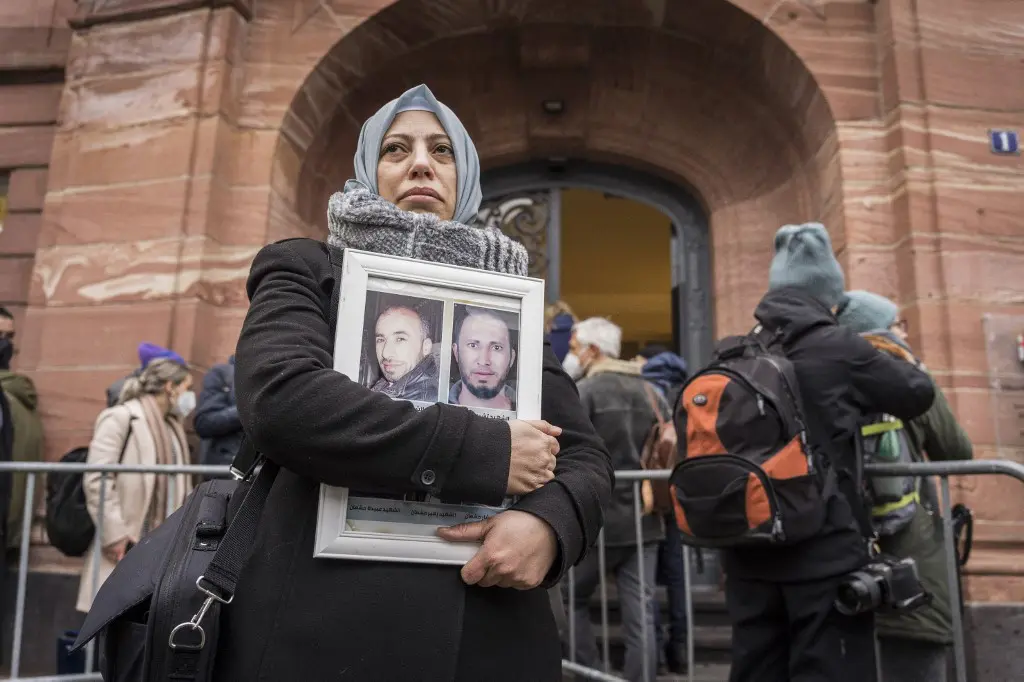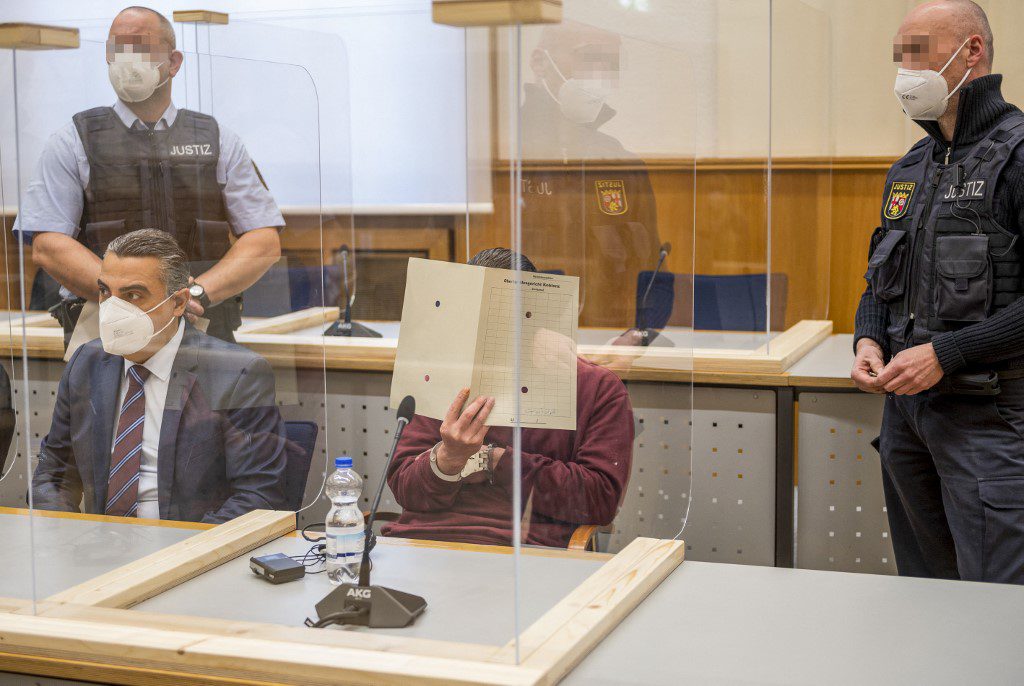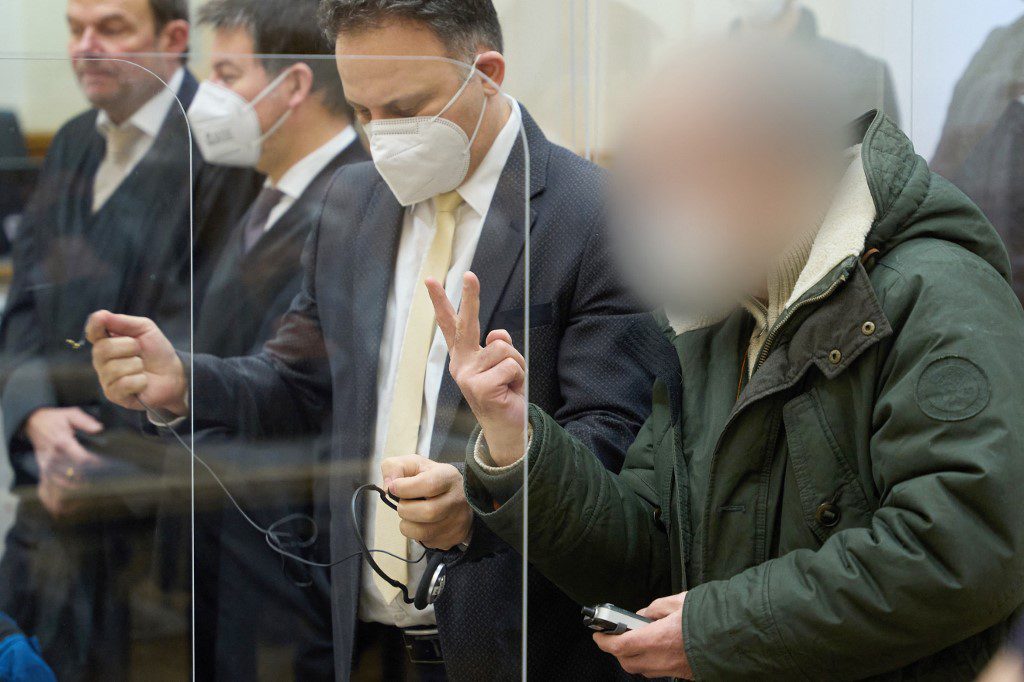
Hussein Alzoubi
The issue of trying those accused of war crimes in Syria has returned to the fore in European courts after the German public prosecutor’s demand for life imprisonment against a former officer in the Syrian intelligence service was revealed.
At the same time, the French judiciary rejected an appeal submitted by a Syrian refugee to try a former security officer also accused of committing crimes against humanity in Syria before immigrating to Europe with his family. The judicial decision brings down the curtain on the first French movement to hold those accused of war crimes and violations against civilians in Syria accountable, while the German prosecutor’s demand represents a new hope for Syrians to achieve a limited measure of justice.
Given the disruption of the international justice process for victims of human rights violations, Syrian and Western human rights centres are seeking to investigate these violations and prosecute the perpetrators, as Europe has become a field of human rights disputes that brought together victims of torture in Syria with their torturers under the domes of courts.
Prosecuting War Criminals in Europe
The activity of human rights groups, in Germany in particular, began with the prosecution of those accused of committing violations at the beginning of 2019. According to a 2020 report issued by Redress Human Rights Organisation, German courts are looking into more than 12 cases related to crimes committed in Syria, including the arrest of the Syrian doctor Alaa Mousa, accused of torturing detainees in the Syrian regime’s military hospitals.
In February 2021, a German court issued a prison sentence of 4.5 years to the defected officer from the regime’s intelligence, Eyad al-Gharib, after convicting him of being involved in 30 protesters’ arrests leading them to a detention centre where they were tortured. The verdict was considered the first to condemn and try a war criminal for torture crimes in which a figure from the regime forces was involved.
Recently, German prosecutors demanded life imprisonment against the former Officer in the Syrian intelligence service, Anwar Raslan, who has been on trial since April 23, 2020, before the Koblenz Higher Regional Court on charges of torturing detainees in a secret detention centre affiliated with the regime in Damascus, stressing that Raslan is guilty of crimes against humanity.
According to the AFP, Raslan is accused of killing 58 people and torturing at least four thousand others while working at the Al-Khatib branch of the Syrian intelligence in Damascus.
In the same context, a Dutch court sentenced a Syrian refugee in mid-July to a 20-year prison sentence for committing a war crime in Syria, a precedent that is the first of its kind. The verdict came against the background of refugee Ahmad al-Khedr filming himself, on YouTube in 2012, shooting a lieutenant colonel from the Syrian regime’s air forces after he was captured and taken to the Euphrates River.
In Belgium, in mid-August 2021, the Federal Bureau of Investigation began investigating at least 10 Syrian refugees accused of committing crimes while working for the regime, according to what was reported by the local Nieuwsblad newspaper.
In the same context, the Federal Public Prosecutor in Belgium said that in the meantime, between 10 and 15 lawsuits were filed against people residing in the country, suspected of committing war crimes.
Why Now?

Thomas Lohnes / POOL / AFP
In a statement to Fanack, the Executive Director of the Syrian Justice and Accountability Centre, Mohammad al-Abdallah, attributes the early start of trials for war criminals in Syria, even before the Syrian file ends, to the greater interest in human rights issues and the development of its files, in addition to the arrival of Syrian refugees to European countries and the opportunity granted to the victims to file lawsuits against their tormentors, who are also on European soil. These are local, national trials. In contrast, previous trials in Rwanda, the former Yugoslavia and Cambodia took was international, by UN resolutions.
Abdallah explains that “the trials of the Syrian file in Europe are local trials based on the principle of universal jurisdiction for human rights. The local and national judiciary is in place, has lawyers and judges and does not need to be established. However, international judiciary requires time to appoint judges and lawyers and secure funding for these courts, which means that this requires more time than expected,” stressing that the nature of trials in Europe contributed significantly to prosecuting war criminals before the end of the crisis in Syria, and helped some Syrians submitting complaints to obtain some of their rights.
Al-Moutassim al-Kilani, a lawyer and human rights activist, believes that the judicial process did not start early, based on the statements of the head of the International, Impartial and Independent Mechanism For Syria (IIIM), judge Catherine Marchi-Uhel, during which she indicated that the number of documented crimes that occurred in Syria is the highest in the world. He considers that these efforts had to be crowned to reach the stage of prosecuting war criminals by taking advantage of the universal jurisdiction enjoyed by European countries.
It is noteworthy that the former French Judge Catherine Marchi-Uhel, had said that her office had received 15 requests from national judicial institutions to cooperate in cases related to Syria in five countries and had collected 1 million records in total.
The IIIM was established in 2016 to investigate and help prosecute perpetrators of the most severe war crimes in Syria.
Universal Jurisdiction
Universal jurisdiction has become the weapon of choice for efforts to achieve justice for crimes committed in Syria because creating an ad hoc tribunal similar to the International Criminal Tribunal for Rwanda and the Former Yugoslavia requires a Security Council resolution.
Since Syria is not a member of the International Criminal Court, a referral to The Hague would also have to go through the Security Council, which did not happen because of the Russian veto.
Universal jurisdiction provides a way to address impunity for serious crimes when other courts do not or cannot.
Universal jurisdiction occurs when states bring their domestic legislation in line with this international obligation so that they incorporate universal criminal jurisdiction into their criminal legislation and national rules of procedure, in addition to the fact that some legislations require the presence of the accused on their territory and other legislation suffices with the presence of victims.
In this context, Germany was not alone in opening the door to investigations and trials within this jurisdiction. Many countries have adapted their laws to international humanitarian law and international human rights law, including Sweden and Norway.
Fair Trials?

Trials in Germany began in mid-February of 2019 when the police arrested Anwar Raslan and Eyad al-Gharib, who left Syria in 2012. Raslan was the head of the investigation in Branch 251, also called Al-Khatib Branch in Damascus, while the latter was the leader of a raid group of 30 members affiliated with the same branch.
In parallel, Der Spiegel interviewed former detainees in the Al-Khatib branch who are now refugees in Germany. They recounted details of the brutal torture they were subjected to. Some of them said that Raslan was partially supervising the torture and that Gharib and his patrol arrested about 2,000 people during the first year of the revolution, and took them to torture cells.
On the same day of the trial, the so-called Abdul Hamid A. was arrested near Paris, then the judiciary announced his accusation of committing crimes against humanity between 2011 and 2013 while working in the regime’s intelligence, a year after the investigations began with him in the Public Prosecution in Paris, as part of a joint investigation with Germany.
These lawsuits have raised multiple opinions in Syria, among those who consider them a start on the path to justice and retribution for war criminals, and others who see them as imperfect or selective justice, especially as they target defectors from the Syrian regime and armed factions, and ignore the regime’s symbols, senior leaders, and faction leaders who are still active to this day.
Kilani points out that “the main objective of these trials is to alert the international community to the necessity to hold the perpetrators of these crimes that occurred in Syria accountable. Otherwise, we will be faced with the possibility of their recurrence, as a result of these criminals realising that no accountability awaits them”.
He also confirms that this is related to the legal procedures imposed by European countries to start investigations, as it is not possible to start any investigation into any suspect without the presence of witnesses and direct victims in addition to sufficient evidence to convict this person. He pointed out that the local police specialising in investigating war crimes are conducting a long and in-depth investigation process so that the final decision remains for the just judiciary in Europe. If all these data are combined, it can be said that these trials have a high degree of justice.
In this context, Mohammad al-Abdallah affirms that these trials are fair because they take place in countries with a long history of an independent judiciary and fair trials. They also separated powers, meaning that the security services do not interfere with judicial procedures, but are subject to them. In addition, Abdallah indicates that those countries have guarantees that coercion or torture will not be used to pressure the defendants, but give them the right to appoint lawyers, considering that all of the above are guarantees of access to a fair trial for the sceptics and the defendants.
Leading into a Change
Abdallah rules out that these trials will bring about any political change to the Syrian file in terms of negotiations or the outcome of the political process. But he believes that they will positively impact the issue of combating impunity and enhancing the concept of accountability, noting that trials and justice outside the international framework will not constitute any deterrent factor to stop crimes, especially among repressive and security regimes.
Transitional Justice?
Transitional justice does not include a single form of justice, whether criminal, reconciliation or compensation, but rather a combination of those, according to Abdallah, who considers that the trials imposed by this context on Syrians, despite being local, are a form of transitional justice, but that is not what the Syrians are looking for.
In turn, the director of the Syrian Network for Human Rights, Fadel Abdul Ghany, told Fanack that these trials are a minimal step in the path of justice because the defendants are the bottom feeders of the Syrian regime’s hierarchy and that senior regime officials will not travel to countries where they may be tried.
On the other hand, Abdul Ghany believes that this case is complex because these people “have victims, especially Raslan, who held an important position in the regime’s intelligence, and was the head of investigations in Branch 215”.
Also, Abdul Ghany considers Raslan “a part of the regime’s security system. Condemning him is a condemnation of the entire regime because he complied with the regime’s orders issued from the highest level.” He adds: “The trial revealed how the regime deals with detainees”.


